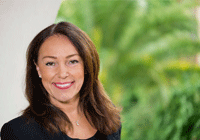
Photo credits:
Stewen Quigley
SCAS News - 16 September, 2022
A Message from SCAS Principal Christina Garsten
The Principal's Note
16 September, 2022
Looking Ahead – the Value of Long-term Horizons
As we welcome the new Fellows to the academic year 2022-23, looking towards the future with
a long-term
view has several important dimensions to it:
First, at the more immediate level, we look forward to engaging with our researchers in seminars,
discussions
and dialogues over the coming months. One of the most fascinating things about our
Collegium is that we get to discover ideas and perspectives that may be new to us, but are brought
here from different disciplines and from different parts of the world. During the course of a year,
we may learn about the contentious politics of African urbanization; sterilization in the making of
Thailand’s national identity; the medical phenomenon of synesthesia and its correlation with autism,
and Persian Shahs in imperial Europe, just to mention a few topics. And then there are the unforeseen
learning moments when perspectives clash or a new angle onto a stalled problem presents itself.
Second, we look forward to continuing our commitment to networking with other institutes for
advanced study and research organizations to strengthen our ties and collaborations across the world.
Over the past year, we have benefitted tremendously from the regular interactions with our European
partners in the NetIAS network, as well as in the international network SIAS, and have been active
in spurring a growing collaboration in the Nordic region. This Nordic collaboration has centred
around
a series of workshops on the opportunities and challenges of interdisciplinarity, and the perils
and
advantages of interdisciplinary careers and collaborations. The climate of reciprocal learning and
dialogue
that this has engendered has led to a commitment to both continue and to expand our collaborative efforts.
In late August, at a meeting between eight Nordic IASs held here in Uppsala, we proudly announced the
network NordIAS. This new network constellation is evidence both of the great value of networking
across boundaries and of the need for future collaboration to advance research and academic freedom.
It is our hope and ambition that new initiatives in this direction will grow out of this constellation.
Third, in our efforts to promote academic networking and interaction across borders, one needs to keep
in mind the vital, yet often regrettably neglected, link between basic research and democracy. The role
of research as bearer of fundamental academic values in a global context is more important today than
ever before, as more countries are moving in an authoritarian direction and as democracy is threatened
by war. This situation, whilst placing great stress on international collaboration, also forges a need to
nurture international cooperation, and makes us reflect on how we can maintain and develop cooperation
in a responsible and ethical way.
Our Collegium, like other research and higher education institutions, is built on the idea that investments
in long-term basic research and education are essential in their contribution to a better, more humane, and
more sustainable future. The perspective here is, by necessity, a long-term one. As we navigate through
the instabilities of our contemporary world, we should remind ourselves, and others around us, of the
value of looking ahead, of long-term horizons – for research, but also for democracy at large.






